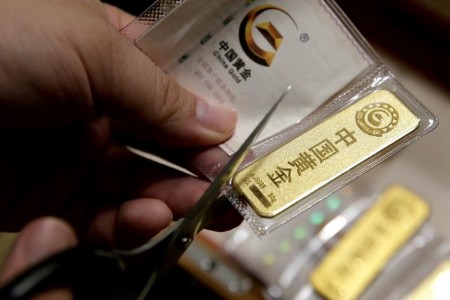




January Economic Update: Growth slows, prices rise
 DOWNLOAD
DOWNLOAD

Inflation Update: Up, up, and away?
 DOWNLOAD
DOWNLOAD

Quarterly Economic Growth Release: Growth takes on a slower pace
 DOWNLOAD
DOWNLOAD


Gold advances as Middle East tensions spur safe-haven demand

Oct 18 – Gold rose to a more than two-month peak on Wednesday as the escalating conflict in the Middle East sent investors flocking towards the safe-haven metal.
Spot gold increased 1% to USD 1,950.67 per ounce by 2:48 p.m. ET (1848 GMT), after hitting its highest since Aug. 1. US gold futures settled 1.7% higher at USD 1,968.3.
“Gold could breach USD 2,000 in the near term if there is an escalation of geopolitical conflict. Additionally, having the Fed pause rate increases or hint at a lower probability of increases in the future would be viewed positively,” said Ryan McIntyre, senior portfolio manager at Sprott Asset Management.
Gold, considered a safe store of value amid political and financial uncertainty, has climbed more than 5% so far in October. Wall Street’s main stock indexes have dipped amid risk aversion. .N
“Gold will pull back if the Middle East situation simmers down, but right now the marketplace is expecting a further escalation,” said Jim Wyckoff, senior analyst at Kitco Metals.
About 500 Palestinians were killed in a blast at a Gaza City hospital on Tuesday.
With the dollar maintaining its bullish trend and bond yields on the rise again, it is not going to take much to slam gold back down, Fawad Razaqzada, market analyst at City Index, wrote in a note.
Focus is also on Federal Reserve Chair Jerome Powell’s speech due on Thursday, which could offer some clarity on the Fed’s interest rate path after recent dovish comments from several US policymakers.
Ole Hansen, head of commodity strategy at Saxo Bank, highlighted in a note that asset managers, many of which trade gold through exchange-traded funds (ETFs), continue to focus on US economic strength, rising bond yields, and potentially another delay in peak rates.
Spot silver rose 0.2% to USD 22.87, platinum fell 1.4% to USD 884.89 and palladium fell 1% to USD 1,132.61.
(Reporting by Ashitha Shivaprasad in Bengaluru; Additional Reporting by Daksh Grover; Editing by Sharon Singleton, Shilpi Majumdar, and Shailesh Kuber)
This article originally appeared on reuters.com





 By Reuters
By Reuters